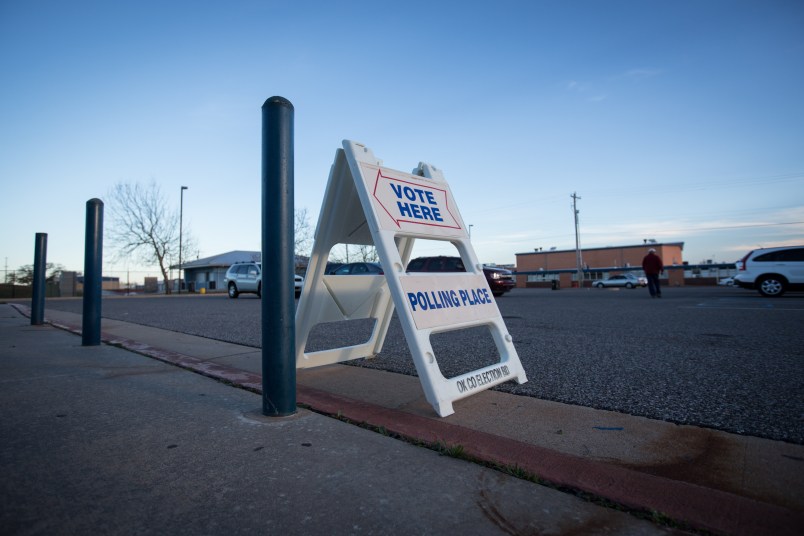OKLAHOMA CITY (AP) — The Oklahoma Supreme Court on Tuesday backed a state requirement that voters provide a photo ID at the polls, the latest decision in a nationwide battle between voting rights advocates who say the laws are aimed at suppressing turnout and conservatives who say the protections are needed to prevent voter fraud.
The court upheld a lower court ruling 8 to 0 with one justice recusing.
“The Oklahoma Voter ID Act is a reasonable procedural regulation to ensure that voters meet identity and residency qualifications and does not cause an undue burden,” according to the 8-0 ruling, with one justice recusing, which upholds a lower court ruling in the lawsuit.
The law, approved by voters in 2010, took effect in July 2011 and requires a voter to provide a federal or state government issued ID that includes a photograph and an expiration date that is after the election in which a person is attempting to vote. It also allows a voter to present an ID card issued by the county election board, or to cast a provisional ballot that would be counted after the person’s identity is confirmed following an election.
The lawsuit by Delilah Christine Gentges of Tulsa was filed in 2012, alleging it creates a “new barrier” for voters.
A phone number listed for Gentges was disconnected and an attorney for her did not immediately return a phone call seeking comment, but had previously said he believes the law would prevent voters from casting their ballots.
“Any condition that affects the right of suffrage is unreasonable in our minds,” Tulsa attorney William Thomas, who represents Gentges has said. “It’s a barrier to voting similar to the poll tax, which is unconstitutional.”
The court’s ruling acknowledged there is no evidence of voter fraud in past Oklahoma elections, but said that does not mean the potential for fraud cannot be addressed.
“(t)he Voter ID Act was intended as a procedural regulation to prevent future in-person voter fraud,” the ruling states. “Neither the Legislature, nor the People of the State of Oklahoma, have to wait for a problem to directly arise before they take action to address it.”
Since Jan. 1, voter ID laws in Texas and Alabama have been upheld while laws in Arkansas and North Dakota were struck down, however the Arkansas law is being enforced pending an appeal and the Alabama and North Dakota rulings are being appealed.
The Texas law was supported by the U.S. Justice Department — a move that amounted to a complete reversal for the federal government, which under former President Barack Obama had joined minority rights groups in suing over the law. But two months after Donald Trump took office, the Justice Department abandoned the argument that Texas passed voter ID rules with discrimination in mind.



